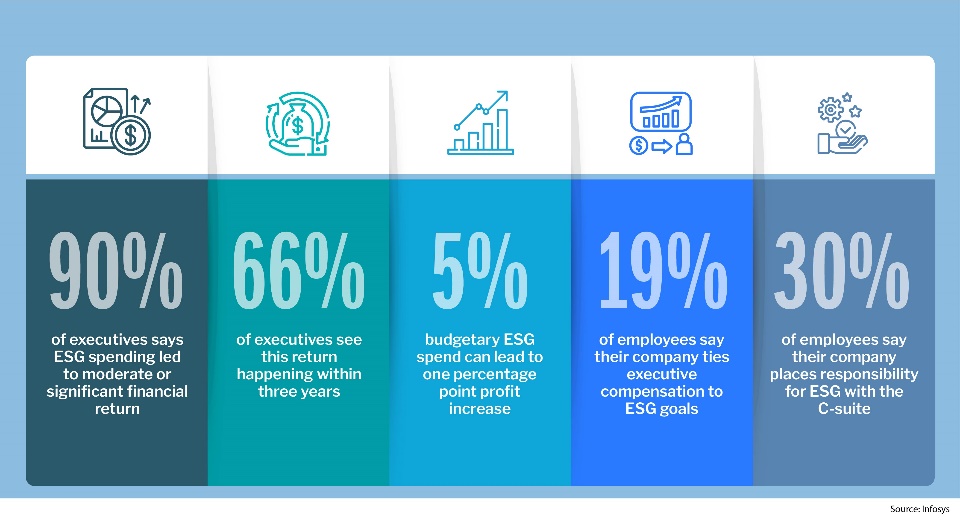Hootsuite's chief diversity officer talks about global warming, climate quitting and green volunteering

With Earth Day landing on April 22nd this year, employers are looking at their Environment, Social and Governance (ESG) strategies, keenly aware that employee expectations around green practices have shifted.
According to data released from The Global Sustainable Investment Alliance (GSIA), sustainable investment assets in Canadian organizations grew from $1.5 trillion in 2018 to $2.4 trillion in 2020, representing a 58% increase year on year.
This investment was further backed up in the recent Federal Budget, which saw the government announce tax breaks for businesses that commit to greener practices – all signifying that ESG really is growing in organizational importance.
Speaking with Tara Ataya, chief diversity and people officer at Hootsuite, she says that ESG is a core component of their 2023 strategy – so much so that they’ve relaunched their annual sustainability report.
Conscious quitting in a candidate-led market
“While this is only our third annual report, we have been embracing ESG-focused initiatives for years,” says Ataya. “We have an ongoing commitment to positively impact the neighbourhoods and communities we live within while equipping those around us through our tools and resources, which is reflected in our mission of empowering organizations to build trust and deepen relationships through the power of social.”
Supporting greener projects isn’t just the right thing to do, it makes sound business sense – especially in the current candidate-driven market. According to data from KPMG, 20% of younger jobseekers have turned down a role because they didn’t believe the company’s ESG values matched their own.
What’s more, over half of employees aged 18 to 24 say that they would be willing to quit a job if they found out their employer wasn’t as green as they claimed to be.

“In our annual employee engagement survey, we asked our employees how important social impact and DEI is to them - as well as how they want to show up to ensure we are being inclusive,” adds Ataya. “We use this data and their feedback to inform our employee impact and DEI programs. I’m also proud to share that when we look at the benchmarks for employee participation from our partners, we’re seeing Hootsuite’s employees outperforming the industry benchmarks year after year.”
For example, last year, the tech giant had 42% of its employees volunteer 882 hours to 25 non-profits in nine countries during their “Beyond the Nest” event – or annual volunteer day. Furthermore, in Hootsuite’s post-event survey, 94% of employees stated they want to participate again next year. By showcasing authentic commitment to ESG, and not paying mindless lip service, employers stand a better chance at not only retaining top talent but also attracting new blood.
Tying ESG to company values
And the data’s there to back it up. Research from Robert Half found that companies are making efforts to increase their actions around ESG. Their data said that 33% of organizations are actively developing clear ESG strategies, and 44% are hiring new support staff to aid with ESG activity.
However, while 40% of professionals believe their company is doing enough to support ESG, 23% feel it’s not enough, 17% not at all, and 19% aren’t even aware of their company’s efforts. Beyond salary, one of the most common topics candidates ask about in interviews is the business’s ESG activity (28%), along with their commitment to company values (23%).
“In my view, every aspect of ESG is crucial,” says Ataya. “However, as an executive, I prioritize championing ESG initiatives throughout our organization. It shouldn’t be considered a strategy that operates off the side of someone’s desk—but rather a lens through which we view our interactions with the world. As a champion, I hold my peers accountable, educate the team, and approach every decision from an ESG perspective.”
ESG trend for 2023 and beyond
Looking ahead to what the future holds for ESG, it’s clear that HR’s role will become even more intertwined with green policies and environmental strategies.
In larger organizations, an in specific industries such as oil and gas, there will be a dedicated “chief sustainability officer” post; however, in lesser nuanced sectors, HR is often rolled into that job too.
So what should HR be preparing themselves for this year? Well, according to Ataya, it all begins with global warming. The main focus of most of the ESG agenda revolves around climate change and mitigating its dangerous effects.
“The scientific consensus is clear - the world needs to limit global warming to 1.5 degrees Celsius above pre-industrial levels to avoid catastrophic climate impacts,” Ataya says. “As such, there will be a growing expectation for companies to take action and set ambitious targets around reducing their greenhouse gas emissions in 2023 and beyond.
“Investors, customers, and employees will continue to scrutinize these targets to ensure that they are meaningful and impactful, and companies that can demonstrate progress towards their targets will be well-positioned to attract investment and customers who value sustainability.”
DEI and ESG
Across the board, Ayata says that DEI in relation to ESG, such as increasing social governance and improving equality scores, is a main point for employees in 2023, regardless of geographic region, gender, race, or ethnicity. So much so that Benevity’s State of DEI report, 90% of respondents say they’ve personally benefited from DEI initiatives at work.
“Although many companies are facing budget cuts and uncertain revenue projections, employees are unwavering in their belief that DEI initiatives should remain a top priority for company leaders,” says Ataya.
“In fact, Benevity’s report also found that a significant majority of respondents (62%) believe that companies should allocate greater resources toward DEI efforts over the next 12 months, considering the current economic instability.”
Increasing regulation
Regulating ESG policies is a new string for to HR’s bow, with local and provincial amendments coming thick and fast this year. Ataya says that regulation has been a big focus in the EU and is becoming a greater focus in the US, Australia and Canada.
“Over the past decade, ESG-focused funds have largely operated with little regulatory guidance. However, this is rapidly changing as regulators worldwide are increasing their focus on fund names, classification, and disclosure obligations.”
And this change is being spearheaded by the EU's Sustainable Finance Disclosure Regulation (SFDR), which mandates greater transparency in reporting for ESG funds.
“According to a report by MSCI, other major market regulators are following suit, with changes in ESG fund names and labels expected in 2023 as new disclosure regimes hold managers to stricter account,” adds Ayata.
For employers, it’s about getting ahead of any impending ESG legal changes – such as governmental sustainability pushes and tax incentives – so you’re not blindsided by any further regulations down the line. If you get to attract top talent, save money with tax credits, and protect the earth, committing to ESG is a bit of a no brainer.




